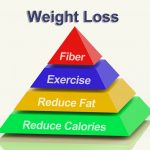Are you concerned about your risk of chronic illness? Do you want to know how you can reduce your chances of developing diseases like diabetes, heart disease, and cancer? One of the most effective ways to prevent chronic illness is by adopting a holistic approach to nutrition.
Holistic nutrition focuses on nourishing your body with nutrient-dense foods that provide a wide range of vitamins, minerals, and antioxidants. When you eat a well-rounded diet, you can improve your immune system function, reduce inflammation, and maintain healthy blood sugar and cholesterol levels.
In this article, we’ll explore the benefits of a nutrient-dense diet and how it can help prevent chronic illness. We’ll also provide practical tips for incorporating holistic nutrition into your life, so you can start reaping the benefits of a healthy diet today.
The Benefits of a Nutrient-Dense Diet
 You can greatly improve your health by consuming a diet rich in essential nutrients and vitamins. A nutrient-dense diet is one that provides your body with all the necessary nutrients it needs to function properly.
You can greatly improve your health by consuming a diet rich in essential nutrients and vitamins. A nutrient-dense diet is one that provides your body with all the necessary nutrients it needs to function properly.
Plant-based proteins, like beans and lentils, provide your body with essential amino acids that are necessary for building and repairing tissues. These proteins are also low in saturated fat and high in fiber, which can help reduce the risk of heart disease and digestive problems.
Essential vitamins, like vitamin C, vitamin D, and vitamin E, are essential for maintaining good health. Vitamin C helps to boost your immune system and protect your body against infections. Vitamin D is important for maintaining strong bones and teeth, while vitamin E helps to protect your cells from damage caused by free radicals.
A nutrient-dense diet that includes a variety of fruits, vegetables, whole grains, and lean proteins can provide your body with all the essential vitamins it needs to stay healthy.
Incorporating nutrient-dense foods into your diet can help reduce your risk of chronic illnesses such as heart disease, diabetes, and cancer. In addition to providing your body with essential nutrients, a healthy diet can also help you maintain a healthy weight, reduce inflammation in your body, and improve your overall sense of well-being.
So, start making small changes to your diet today, such as adding more fruits and vegetables to your meals, and reap the benefits of a nutrient-dense diet.
Understanding Chronic Illness and its Risk Factors
Exploring the factors that contribute to long-term health issues is like peeling back the layers of an onion – each layer revealing a deeper understanding of the complexities of our bodies. Chronic illness causes are multifactorial, often involving a combination of genetic, environmental, and lifestyle factors.
Some common chronic illnesses include heart disease, diabetes, obesity, and cancer. These illnesses are responsible for a significant proportion of global mortality and morbidity and can significantly reduce a person’s quality of life.
To reduce your risk of chronic illness, it’s important to understand the risk factors associated with these conditions. Some of the most common risk factors include poor diet, lack of exercise, smoking, excessive alcohol consumption, and stress.
Addressing these factors through prevention strategies such as a healthy diet, regular exercise, and stress management techniques can help to reduce your risk of chronic illness.
Incorporating a nutrient-dense diet into your lifestyle is one of the most effective ways to prevent chronic illness. A nutrient-dense diet includes a variety of whole foods rich in vitamins, minerals, and other essential nutrients.
Here are some examples of nutrient-dense foods to incorporate into your diet:
- Leafy green vegetables such as spinach and kale
- Berries such as blueberries, raspberries, and strawberries
- Nuts and seeds such as almonds, chia seeds, and flaxseeds
- Whole grains such as quinoa, brown rice, and oats
- Fatty fish such as salmon and sardines
By understanding the risk factors associated with chronic illness and incorporating prevention strategies such as a nutrient-dense diet, you can significantly reduce your risk of developing these conditions. Remember, prevention’s key when it comes to chronic illness, so take care of your body today to ensure a healthy future.
How Holistic Nutrition Can Help Prevent Chronic Illness
With a focus on whole foods and nourishing your body from the inside out, you can take proactive steps towards a healthier and happier life. Holistic nutrition can play a vital role in preventing chronic illnesses by focusing on the role of the gut microbiome and anti-inflammatory foods.
A balanced diet that includes plenty of plant-based foods, healthy fats, and lean proteins can help support a healthy gut microbiome. This, in turn, can reduce inflammation in the body and lower the risk of chronic illnesses such as heart disease, diabetes, and cancer.
The gut microbiome plays a significant role in maintaining overall health. When the gut is healthy, it can prevent inflammation in the body, which is a leading cause of chronic illnesses. By incorporating probiotics and prebiotics into your diet, you can improve the diversity of your gut microbiome and support its function.
Probiotic-rich foods such as fermented foods, yogurt, and kefir can help increase the number of beneficial bacteria in your gut. Prebiotic foods such as garlic, onions, and asparagus can help feed these beneficial bacteria and promote their growth.
Incorporating anti-inflammatory foods into your diet can also help prevent chronic illnesses. These foods include fruits, vegetables, whole grains, nuts, and seeds. These foods are packed with antioxidants, which can help reduce inflammation in the body. Additionally, omega-3 fatty acids found in fatty fish such as salmon can also help reduce inflammation.
By focusing on these types of foods, you can help reduce your risk of chronic illnesses and improve your overall health and well-being.
Practical Tips for Incorporating Holistic Nutrition into Your Life
Make your meals a colorful and flavorful experience by incorporating a variety of fresh, whole foods into your daily routine. Eating a rainbow of fruits and vegetables not only provides a wide range of nutrients, but also allows your taste buds to savor the vibrant hues and textures of nature’s bounty.
Start by planning your meals ahead of time, and include simple recipes that feature seasonal produce. This can be as easy as roasting a variety of veggies or creating a colorful salad with a homemade dressing.
Eating healthily doesn’t have to break the bank. There are many budget-friendly options available, such as buying produce in season, shopping at local farmers markets, and buying in bulk. You can also save money by cooking at home and avoiding eating out. When you do eat out, choose restaurants that offer healthier options, such as salads or grilled meats. Don’t be afraid to ask for substitutions or modifications to make a dish healthier.
Meal planning is key to incorporating holistic nutrition into your lifestyle. Take some time at the beginning of each week to plan out your meals and snacks. This can help you stay on track and avoid making unhealthy choices when you’re hungry and pressed for time.
Keep healthy snacks on hand, such as raw nuts, fresh fruit, or cut-up veggies. By making small changes to your eating habits, you can improve your health and reduce your risk of chronic illness.
The Future of Holistic Nutrition and Disease Prevention
Looking ahead, we’ll explore how a whole foods, plant-based diet can positively impact our health and the environment. The role of technology in holistic nutrition is becoming increasingly important. With the help of apps, wearable devices, and personalized nutrition plans, individuals are able to track their food intake and receive recommendations on how to improve their diet. This technology allows for a more individualized approach to nutrition, taking into account factors such as age, gender, and activity level.
Integrating traditional medicine with holistic nutrition is also a growing trend. Many medical professionals are recognizing the benefits of a whole foods, plant-based diet in preventing and treating chronic diseases such as heart disease, diabetes, and cancer. By incorporating nutritional counseling into their practice, doctors and other healthcare professionals can help their patients make lifestyle changes that can lead to better health outcomes.
As we look to the future of holistic nutrition and disease prevention, it’s clear that there is a growing interest in this approach to health. With advancements in technology and a greater understanding of the role nutrition plays in our overall health, it’s likely that we will continue to see more emphasis placed on whole foods, plant-based diets and the incorporation of traditional medicine with holistic nutrition.
By making small changes in our own lives, we can work towards a healthier and more sustainable future for ourselves and the planet.
What specific nutrient deficiencies can lead to chronic illness?
To prevent chronic illnesses, it’s important to maintain a diet that includes a variety of nutrient-rich whole foods.
Nutrient deficiencies can lead to various health problems, such as iron deficiency leading to anemia, calcium deficiency leading to bone loss, and vitamin D deficiency leading to weakened immunity.
Incorporating a range of fruits, vegetables, whole grains, lean proteins, and healthy fats into your diet can help ensure that you’re getting the nutrients your body needs to function optimally.
Additionally, consuming whole foods instead of processed foods provides benefits beyond just the nutrients they contain, such as fiber and antioxidants, which can help protect against chronic diseases.
So, prioritize the importance of variety and the benefits of whole foods to reduce your risk of chronic illness.
Can holistic nutrition completely prevent all types of chronic illness?
While holistic nutrition can certainly play a significant role in reducing your risk of chronic illness, it’s important to note that it may not completely prevent all types of chronic illness.
There are limitations to what a healthy diet can do, and it’s important to have realistic expectations when it comes to the benefits of holistic nutrition.
It’s also important to remember that holistic nutrition should not be seen as a replacement for medical treatment. Rather, it should be used in conjunction with medical treatment to help achieve optimal health.
Balancing holistic nutrition with medical treatment can help ensure that you are taking a comprehensive approach to your health and wellbeing.
How does stress play a role in chronic illness and how can holistic nutrition address this?
Stress can be a major contributor to chronic illness, and it’s important to manage it effectively. One way to do this is by using stress management techniques, such as mindfulness meditation or yoga.
Another important factor to consider is the gut-brain connection, as the health of your gut can have a direct impact on your mental health and stress levels. Incorporating a healthy diet with plenty of whole, nutrient-dense foods can support a healthy gut and reduce stress levels.
Additionally, consuming foods rich in omega-3 fatty acids, such as fatty fish or chia seeds, can help reduce inflammation in the body and improve overall health.
By taking a holistic approach to stress management and gut health, you can reduce your risk of chronic illness and improve your overall well-being.
Is it necessary to completely eliminate certain foods or food groups from your diet to practice holistic nutrition?
When it comes to practicing healthy nutrition, it’s not always necessary to completely eliminate certain foods or food groups from your diet. In fact, many experts agree that moderation is key when it comes to balancing macronutrients and achieving optimal health.
Rather than focusing on restriction and deprivation, the goal of holistic nutrition is to create a well-rounded and sustainable eating plan that includes a variety of nutrient-dense foods. Of course, there may be certain foods or ingredients that you choose to limit or avoid based on personal preference or health concerns, but the overall emphasis should be on balance and nourishment rather than rigid rules and restrictions.
How can holistic nutrition be integrated with traditional medical treatments for chronic illness?
Integrating holistic nutrition with traditional medical treatments for chronic illness is becoming more common in collaborative care settings. Combining treatments can result in better outcomes for patients. Studies show that patients who receive both conventional treatment and complementary therapies experience less pain, improved quality of life, and reduced stress.
Collaborative care allows for a more personalized approach to treatment. Healthcare providers work together to create a tailored plan for each patient. By incorporating holistic nutrition and other complementary therapies, patients can improve their overall health and well-being. This leads to a better quality of life.
You’ve learned about the power of holistic nutrition in preventing chronic illness. By incorporating a diet rich in nutrient-dense foods, you’re taking proactive steps towards a healthier future.
You now understand the risk factors associated with chronic illness and how holistic nutrition can mitigate them. By focusing on whole, unprocessed foods and avoiding harmful additives, you’re fueling your body with the nutrients it needs to function optimally.
As you move forward, remember that every small step counts. Incorporating holistic nutrition into your life doesn’t have to be overwhelming. Start by making small changes, such as swapping out processed snacks for whole fruits and vegetables.
Over time, these small changes can add up to significant improvements in your overall health and wellbeing. Remember, as the saying goes, “You are what you eat.” By taking control of your diet and prioritizing nutrient-dense foods, you’re investing in your long-term health.
So, let’s start making those positive changes and take charge of our health one bite at a time!









